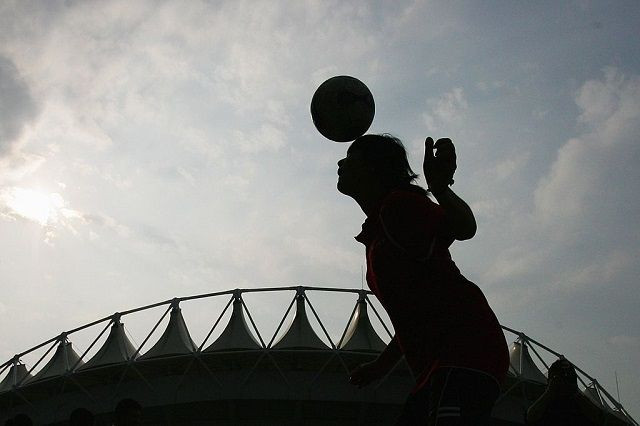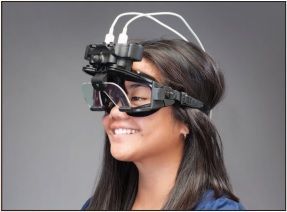Do I Have A Concussion? Scientist-Designed Goggles Are The New Diagnostic Tool

The combined power of several tests may someday help doctors objectively diagnose concussions with ease, suggests new research published in PLOS-One.
A group of researchers, primarily from the University of Miami, recruited 100 volunteers to take a seat in the I-Portal®-Neuro-Otologic Test Center, a diagnostic chair platform designed by Pennsylvania-based Neuro Kinetics, Inc.. The platform, which comes equipped with specially made goggles, measures people’s eye movements in a variety of ways. The researchers were able to find subtle differences between the two groups of subjects, half of which had been recently diagnosed with a mild traumatic brain injury (mTBI). And with the help of three measurements in particular, they were able to pin down who the concussed subjects were with 89 percent accuracy, and rule out healthy volunteers with 95 percent accuracy.
"This is the first paper demonstrating an objective method of diagnosing mTBI that relies on physiologic parameters," said study author Dr. Michael Hoffer, a professor of otolaryngology at the University of Miami Miller School of Medicine, in a statement. "This work opens the door for site of injury testing and access to physiologic tests for athletes of all ages."

One of the three tests the researchers used involves people’s ability to generate anti-saccades, a measure of our executive function. Volunteers are asked to stare straight ahead at a dot until another dot pops up on either side. Ordinarily, people’s reflex is to quickly look at the new stimulus, but in the test, they’re told to steer their eyes in the opposite direction. The less able someone is able to do that, the more damage to their frontal cortex they might have.
The tests that predicted concussion weren’t necessarily correlated to one another, meaning that the concussions didn’t affect volunteers’ brains in the same way every time out. Only when the researchers used the tests in a combined model were they able to predict who did and didn't have a concussion. However, there was no need for baseline testing, meaning that the researchers were able to diagnose concussions without knowledge of the person’s brain health before the injury. That in turn could allow the test center (and goggles) to be a first-line diagnostic tool someday soon.
"It is not inconceivable that in the near future you will see the I-Portal goggle used on every sideline in America," Hoffer said in the release. "With accurate and timely diagnosis, which is possible through this technology, patients could receive better treatment faster. It's one of many developments that are needed to begin to curb the concussion epidemic."
Source: Balaban C, Hoffer M, Szczupak M, et al. Oculomotor, Vestibular, and Reaction Time Tests in Mild Traumatic Brain Injury. PLOS-One . 2016.



























